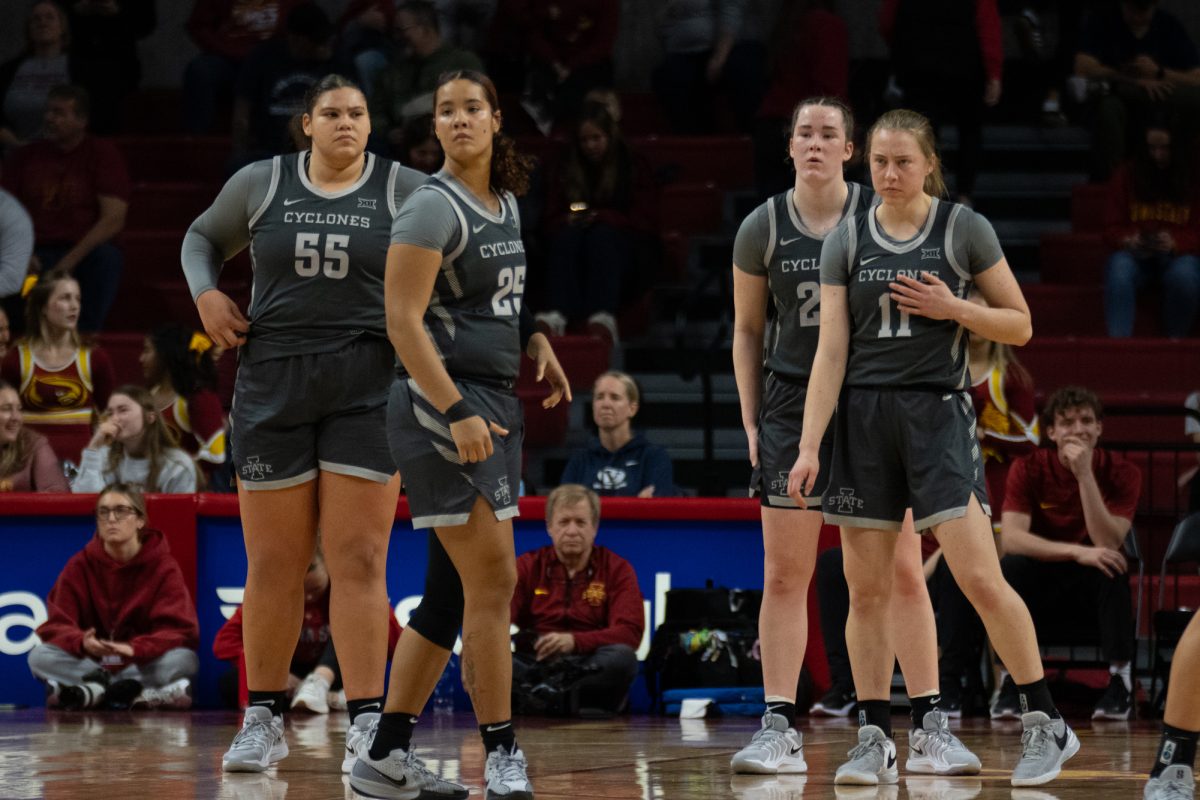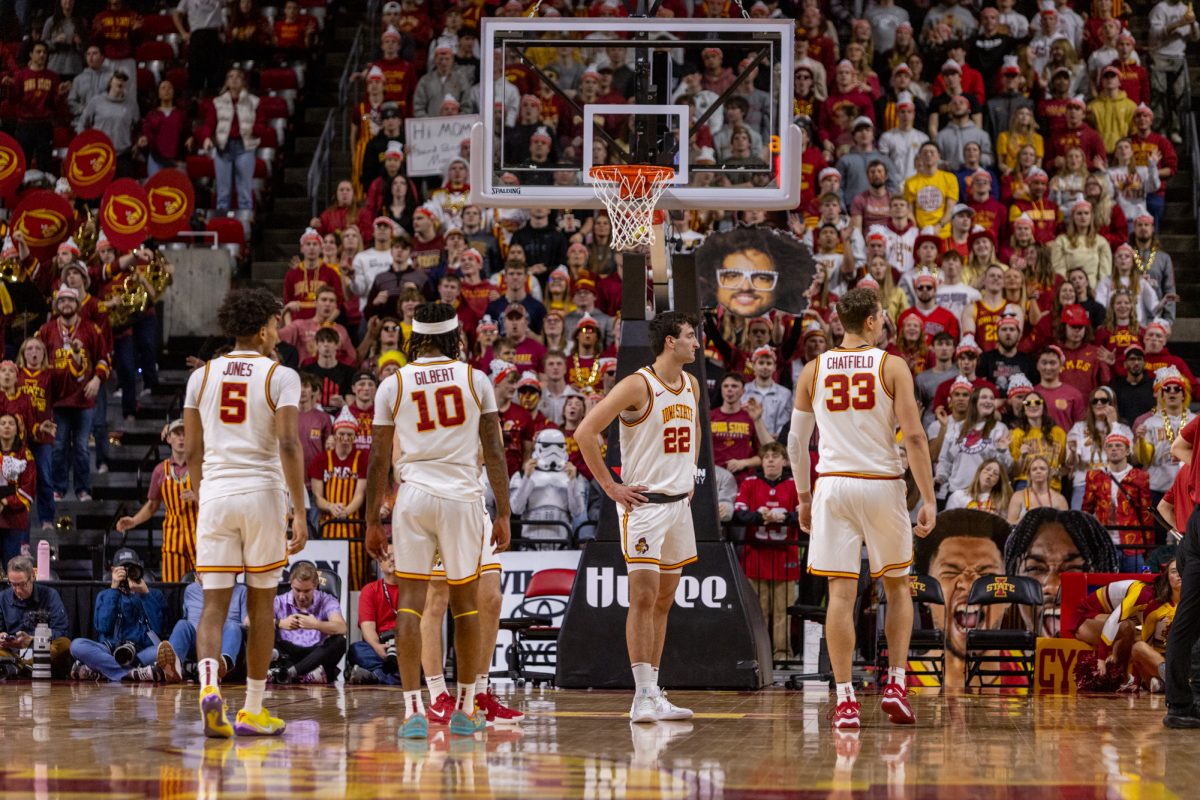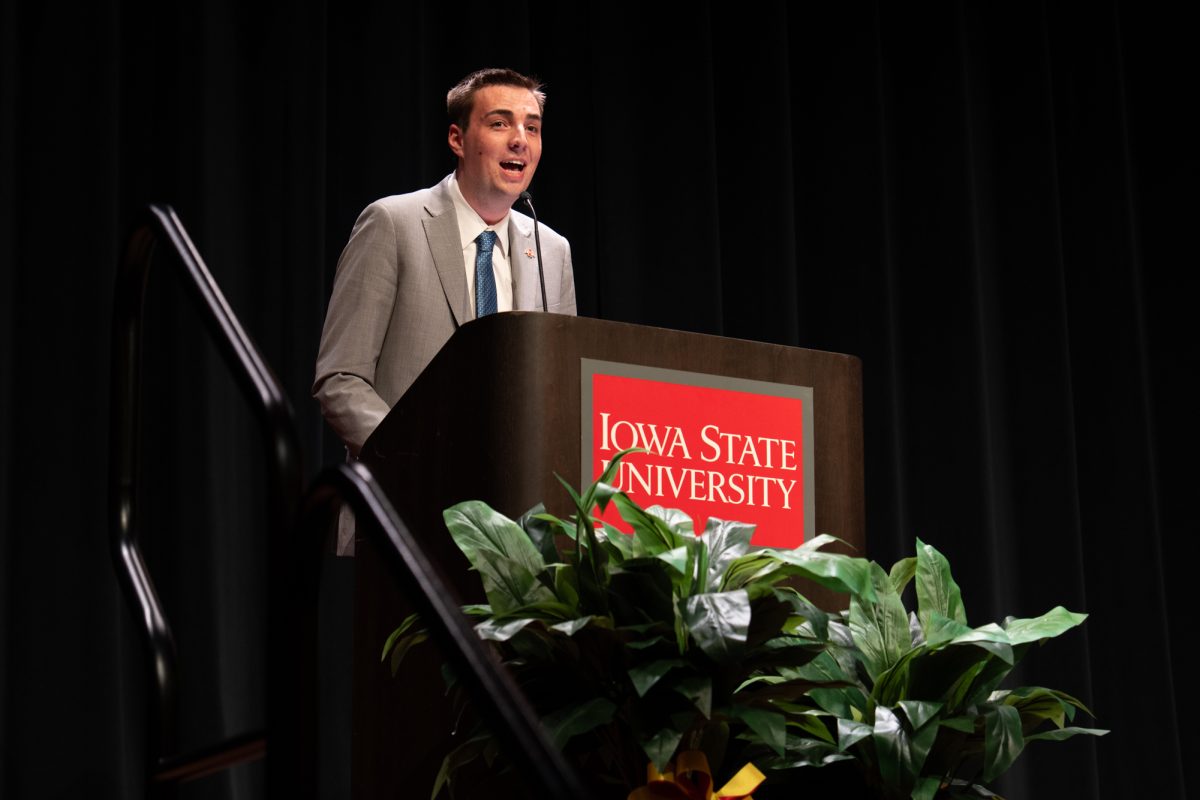Student government supreme court reverses fines imposed on campaign
April 3, 2010
The Government of the Student Body Supreme Court ordered “all fines be reversed, including the $150 Good Faith Deposit,” in its decision regarding the case of Luke Roling and Nathan Dobbels vs the GSB Election Commission.
On March 1, an e-mail was sent out to the Inter-Residence Hall community and students living in Schillitter University Village.
The commission sited section 8.14 when members issued fines of up to $1,950 against the Roling-Dobbels campaign. According to section 8.14, “e-mail communication through any Iowa State University listserv shall be prohibited within 24 house of the voting periods and during the voting periods.”
Ambiguities in Section 8.14 was part of Roling-Dobbels’ oral arguments Friday.
After some pressure from Supreme Court Chief Justice Brian Phillips, Roling did eventually admit to interpreting the word house to mean hours.
The opinion of the court listed several reasons for the justices’ decision to lift all of the fines imposed on the Roling-Dobbels campaign by the commission.
The first was that the Election Commission “violated the defendant’s right to due process by holding its investigatory hearing five hours and ten minutes after notifying the accused.” According to GSB’s bylaw 13.2.10.4, “The accused and, if applicable, the accusing party shall be notified within twenty-four (24) hours of the decision to hold a hearing.”
Election Commissioner Dan Porter said he made the decision to hold the hearing that night after seeking advice from the dean of students, but the Opinion of the Court states that, “while seeking out consultation is a laudable act, the recommendation of an adviser does not trump existing Government laws.”
During oral arguments, Porter said deciding to hold the hearing at a later time would not have affected the Commission’s decision.
According to the Opinion of the Court, “the Election Commission’s assertion that the outcome of the hearing would not have been affected by a later time and date are insufficient, as there is no way to ascertain the outcome of a hearing that did not happen with witnesses who may or may not have been able to attend a later hearing.”
According to the Opinion of the Court, the “commission did not provide justification for the magnitude of these fines [$1,950] when notifying Mr. Roling of the amount.”
According to the Opinion of the Court, “refusing to provide reason for financial penalties is a violation of the penalized party’s right to due process under the Fifth and Sixth Amendments to the United States Constitution. Additionally, the petitioners claim that the Election Commission’s fines were unreasonably high for this offense.”
In the Opinion, the Court ordered, “that all penalties assessed by the Election Commission be accompanied with explicit reasoning for each amount fined and the process for appealing each fine be included in the written statement of fines. It is also ordered that the Election Law be updated to reflect this order.”
According to the Opinion of the Court, the Court “recognizes shortcomings in the Election code, including but not limited to grammatical and spelling errors, ambiguous language, and limited options for penalizing violators.”
According to the Opinion of the Court, the justices believe many of the Code’s shortcomings could have been avoided by a careful review of Election Code prior to the election.
In its Opinion, the Court issued a second order to the Election Commission: to “review the Election Code at least once per year prior to the election and, at minimum, submit written notification that the Election Code has been reviewed to the Speaker of the Senate.”
The Opinion of the Court also addressed the issue of third parties campaigning on behalf of candidates.
“To allow third parties to act as proxies for candidates and violate the rules where candidates cannot is unacceptable. Therefore, to protect the integrity of elections and ensure that all parties participating in the election process are responsible for their actions, the Court orders the Election Commission to implement a mechanism to hold both endorsing and non-endorsing parties accountable for their actions relating to GSB elections.”
In the Court’s final order, justices ordered “that Candidate Endorsement forms inform endorsing parties that their actions may result in disciplinary actions for both the candidate/slate and the endorsing party if there is noncompliance with Election Law.”






